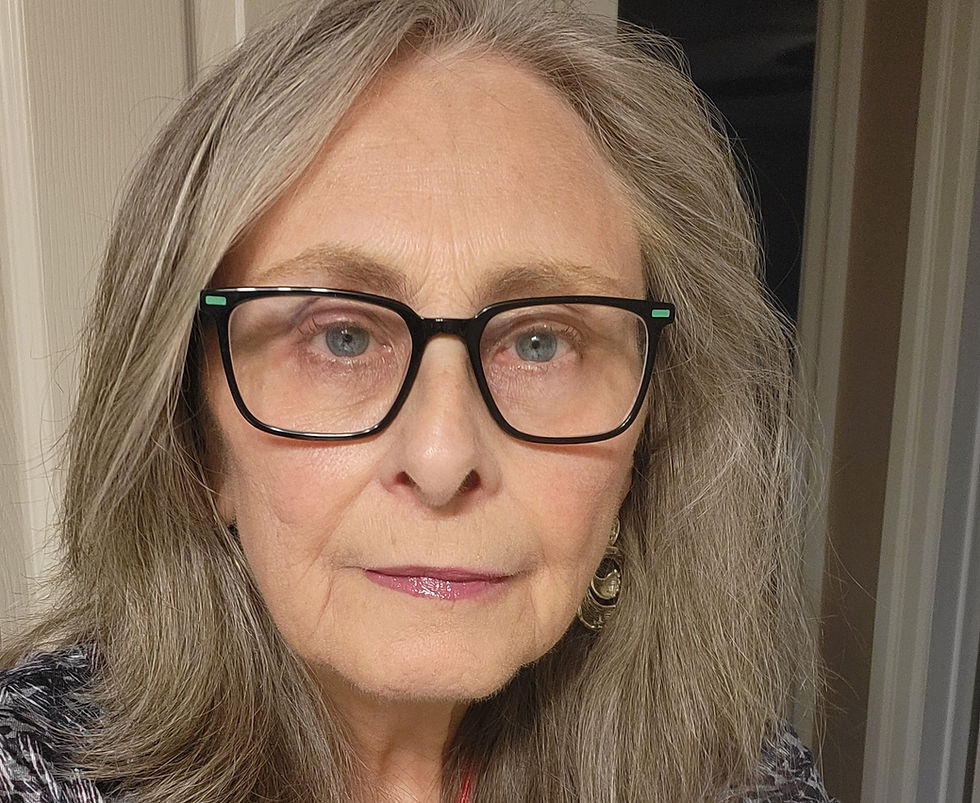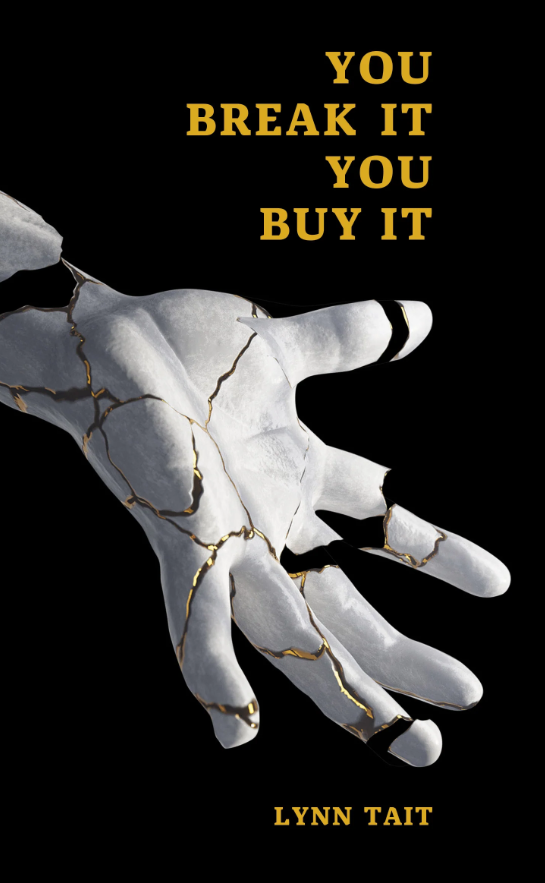Lynn Tait: Poetry as an evolving craft
- Sheelagh Caygill

- Aug 28, 2025
- 4 min read
Lynn Tait is an award-winning poet and photographer residing in Sarnia, Ontario, Canada. Her poems have appeared in Prairie Fire, FreeFall, Vallum, CV2, Literary Review of Canada, High Shelf Press, Verse/Virtual, Muleskinner, Last Leaves, Anti-Heroin Chic, Up the Staircase Quarterly and in more than one hundred North American anthologies.

Lynn's photographs have been featured on the cover of nine poetry books and in Art Ascent, Still Point Arts Quarterly and Rattle’s Ekphrastic Challenge. She is a member of the Ontario Poetry Society, the League of Canadian Poets, The Writers Union of Canada, the Not The Rodeo Poets and an
associate member of the American Academy of Poets. Her debut poetry collection You Break It, You Buy It was released in 2023 by Guernica Editions. Lynn Tait: Poetry as an evolving craft explores the influences Lynn's writing, how she views poetry as an evolving craft, her figurative language, and her focus on themes of grief and loss.
Lynn Tait: Poetry as an evolving craft
OCW: What life experiences have shaped your writing style?
LT: I came from a household where my mother, and later my step-father
were authoritarian in their child rearing style. They were very black and white in their thinking and having an opinion or showing anger was not allowed. When my journal was found – with the content being negative towards my mother, the consequences for keeping one was unpleasant. I could hide behind words using poetry and still journal, in a way, so to this day my work uses a lot of simile and metaphor. I use a lot of ambiguity allowing the readers to read what they want as to their own lives and interpretations. I didn’t write poems about my mother until her diagnosis with Alzheimer’s Disease. Some of my work is from experiences dealing with dysfunctional people or people who refused to hold themselves accountable for their actions.

The roots of writing: From a painful past to a poetic voice
The death of our only child in 2012 from an accidental dose of fentanyl at the age of 29 certainly shaped my writing. I don’t know if I’d say my experiences have shaped my style, but it has shaped the subject matter.
OCW: Has your writing evolved over the years? If so, how? Through writing experience? Reading a lot? Writing courses or communities? A combination, or something else?
LT: Definitely a combination. I started out heavy with descriptions, adjectives, very flowery and depressing.
I’ve been writing for more than 50 years; the first 10 or so I wrote badly. I had a high school creative writing teacher who was very influential. I read a lot of poetry and books on the craft. Zoom has really been a god-send. I’ve done workshops for years with top notch Canadian and American poets.
Evolution and community: The continuous journey of a poet
I’ve been involved with writing groups on and off since I was 20. I’m involved with a local group of writers, that produce prose and poetry, but locally there isn’t a strong community of poets. There was, but most of them have passed away.
Nationally, I’m a member of numerous poetry organizations and I belong to a nine member North American poetry critiquing group. We call ourselves Not The Rodeo Poets. We are an incredible group of women poets from all walks of life and with
extraordinary life experiences who found each other during Covid and we still Zoom meet twice a month. I’m in another group that started out as a poetry workshop and for the past five years we get together on Zoom twice a week and talk.
Thematic shifts: From toxic relationships to what connects us
OCW: Can you trace any common themes across your writing?
LT: Well, since writing and publishing You Break It You Buy It, I’m trying to get away from poems featuring toxic relationships, difficult people and circumstances. I’m trying to focus more on what connects us. I think I’m writing more about change – its effects.
I’m exploring grief and loss which is perpetual. With change comes both gain and loss. Nature shows us this every day. I try to offset life’s perplexities with humour and show readers they are not alone with their thoughts and feelings. My backyard has become a great source for poetry. The drama, the changes through the years of plants, trees, how animals and plants behind my house have
managed to survive and adapt to environmental changes and each other is fascinating. Right now, I’m writing a number of Centos and “After” poems. I love honouring other poets’ words.
OCW: Which authors and/or types of books do you like to read?
LT: I read a lot of nonfiction. Poetry, craft books on poetry, essays, history,
psychology and philosophy has always interested me. I read a lot of
books on animal and plant behaviour. I don’t read one book at a time. I
usually have many on the go. I love hard copy books, but I do also read
eBooks. I read too many books at once and Kindle makes it easier
especially while travelling. Authors? Many American and Canadian poets.
Too many to name. I wish I had time to read fiction.
OCW: Do you edit as you write, or write and edit later?
LT: Write and edit later. If I edited while I wrote I’d get too hung up on word choice, overthinking and depress myself as to why I’m writing at all.
I also write differently with pen and paper, more melodramatic and I go
on and on. I’m more focused writing poems on my computer. With the
Cento it is pen, ink and computer. It seems I have a knack for them.
My ADHD actually works in my favour when writing that particular form.



Comments